Bali rockers rage against reclamation in Indonesia’s tourist hub
Artists and environment groups continue to resist multibillion-dollar project, which they say will destroy Bali.
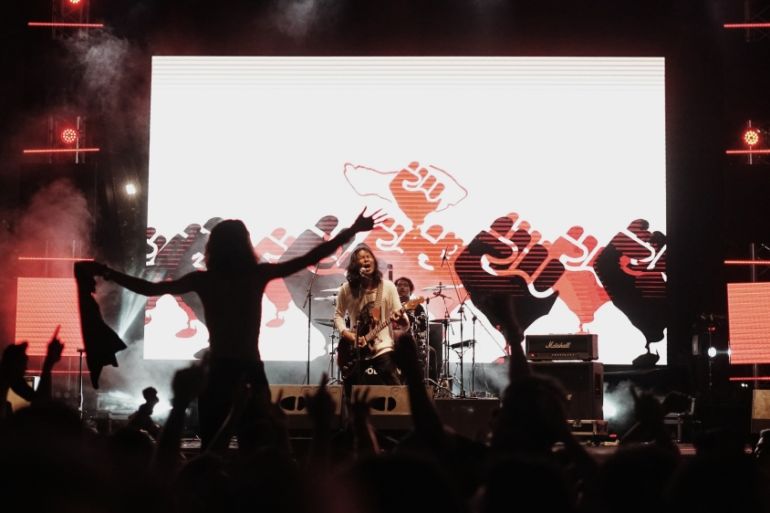
Bali, Indonesia – Musician I Gede ‘Jerinx’ Ari Astina was still a student at the University of National Education in Denpasar, the provincial capital of Bali, when he first got involved in activism.
It was 1997 and massive demonstrations had erupted across Indonesia, demanding the resignation of longtime ruler, Soeharto. Jerinx joined the movement, designing posters.
Keep reading
list of 3 itemsAustralian gets 4 months in jail over drunken Bali rampage
Paradise paved: Bali rice fields disappear beneath hotels, bars
“I once made a poster with the words, ‘So Hard To F*ck’, which sounded like Soeharto F*ck,” he recalled of his political awakening.
At that time, Jerinx had already built a loyal following in Bali, playing rebellious tunes with other homegrown punk rock artists under the band name, Superman Is Dead – inspired by the American groups, Green Day and NOFX.
His “street cred” drew other young Indonesians to join the anti-government protest, which culminated in Soeharto’s overthrow on May 21, 1998.
More than 20 years later, Jerinx has turned his attention to fighting big business and saving Bali, the island where he was born, from threats of further environmental destruction and “uncontrolled” commercial tourism.
Through his music, he is now enlisting a new generation of activists to stop a long-standing reclamation plan in Bali’s Benoa Bay.
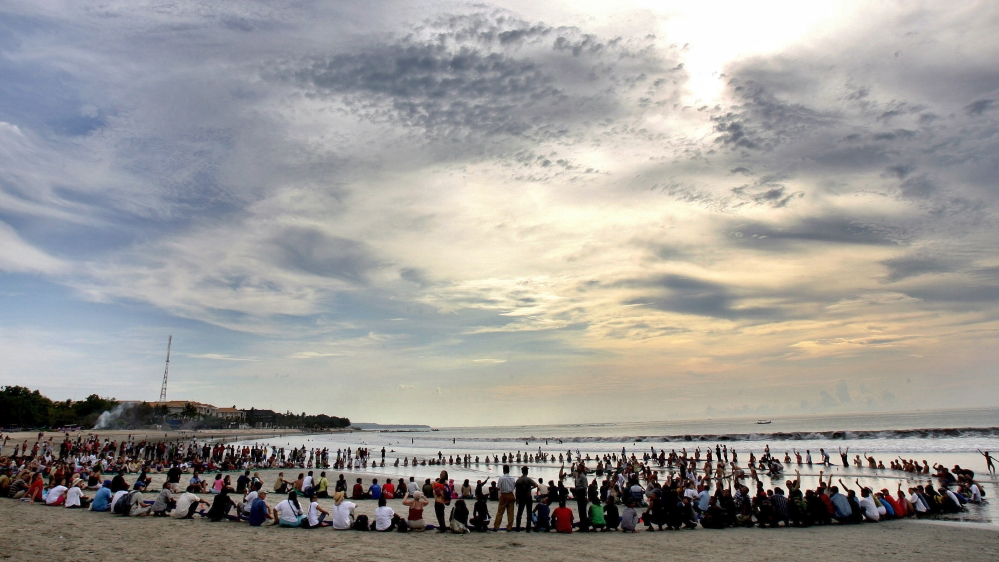
Environmentalists warn that the multibillion-dollar project, covering 838 hectares (2,070 acres) of land, could trigger soil erosion and water contamination on the island, which is already struggling to cope with the influx of mass tourism.
According to ForBALI, an alliance opposing the reclamation, the project could fill about 75 percent of Benoa Bay with soil for land use.
The bay is considered as a “buffer zone” and a “green belt” that helps absorb excess water during the rainy season, and groups warn reclamation could trigger flooding.
State-backed reclamation
The controversy first started in December 2012, when then-Governor of Bali Mangku Pastika issued a decree allowing the PT Tirta Wahana Bali Internasional company to “revitalise” Benoa Bay.
At that time, Indonesian business tycoon, Tomy Winata, head of the Artha Graha Network, had expressed interest in the project, promising to invest up to $2bn (Rp30 trillion) to transform Benoa Bay, creating a series of artificial islands and building an F1 car-racing track.
PT Tirta’s website explaining the project shows that it is supported by Artha Graha.
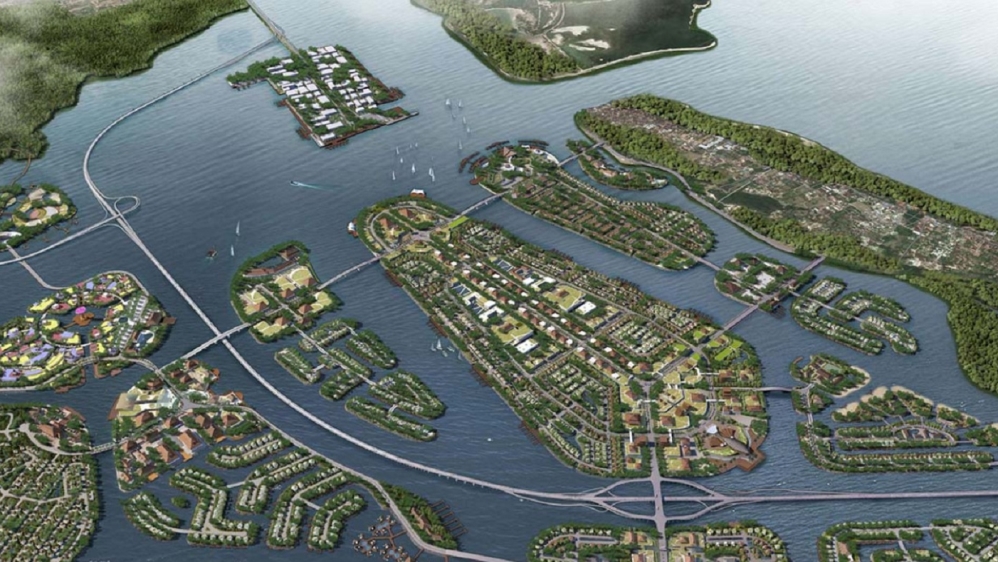
PT Tirta says the project seeks to integrate “the origins of Balinese culture and traditional customs in the development of islands of resorts, theme parks, community areas, residential clusters to become the new iconic tourist-destination in Bali.”
The project also features a botanical garden and an extensive highway that cuts across the natural waterway.
By 2014, then-President Susilo Bambang Yudhoyono had also signed off on the project, re-designating Benoa Bay as a commercial zone.
As of 2018, there were an estimated 150,000 people living in 12 villages in the Benoa Bay area. The bay also includes an estimated 1,375 hectares (3,397 acres) of mangroves and five rivers.
Strong opposition
Since the reclamation project was proposed eight years ago, environmentalist Wayan Gendo Suardana has expressed his strong opposition, fearing that it will lead to further environmental destruction in Bali.
It was Gendo’s idea to sign up artists and musicians, including Jerinx, to join the movement, hoping to expand the campaign.
“An activist doesn’t always have to be a musician. But what if we transform a musician into an activist,” said Gendo, who is the coordinator of ForBALI environmental alliance and campaigner of Bali Tolak Reklamasi (Bali Rejects Reclamation).
Given Jerinx’s history of activism, the musician did not need much convincing. His group, Superman is Dead, became the first band to be part of the anti-reclamation campaign.
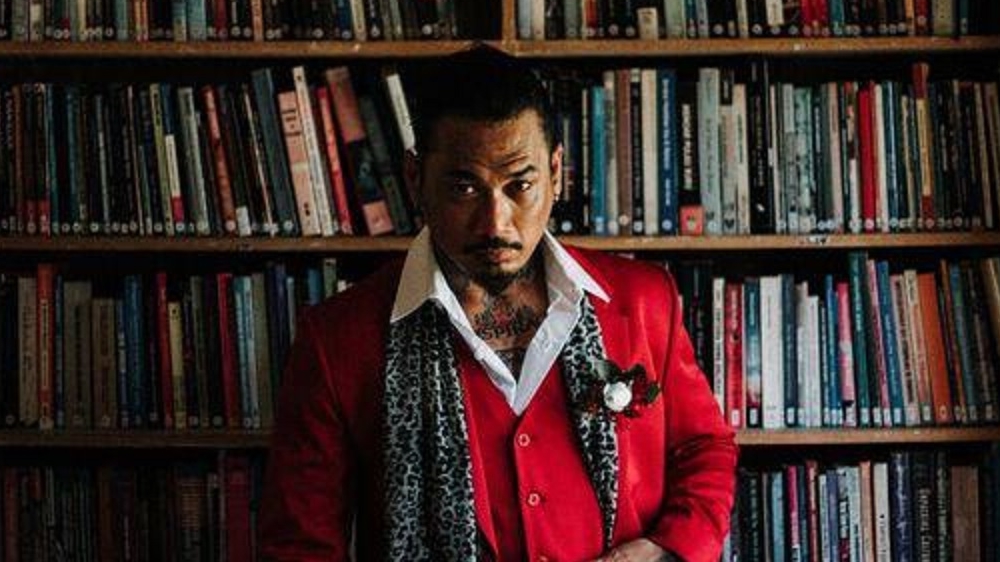
Other bands such as Navicula, which is already on the front lines of the campaign to save Indonesia’s rainforest, as well as the pop-indie band named, Nosstress, also joined.
“As a Balinese, I saw there was a threat to the ecology. I wanted to be involved in guarding the environment,” Gede Robi Supriyanto, Navicula’s vocalist, also known as Robi, told Al Jazeera.
Robi said residents of Bali saw through the “political trick” being attempted by its leaders when they gave the project the green light.
“We were fooled. It’s clear for everyone, who knows the history of the place, and we were so upset.”
Enough with the development
For Bali’s Hindu community, the commercial development at Benoa Bay also feels like an attack on its religious traditions.
If the reclamation is allowed, it is estimated that at least 24 temples in the area would also be removed, said I Wayan Widyantara, a member of the temple management group, Pengempon, which also opposes the project and is part of the anti-reclamation alliance.
Taking on the government and the private company involved in the reclamation, however, has not been an easy task for Gendo and his allies.
When the movement first started, only a few people were willing to risk joining the campaign.
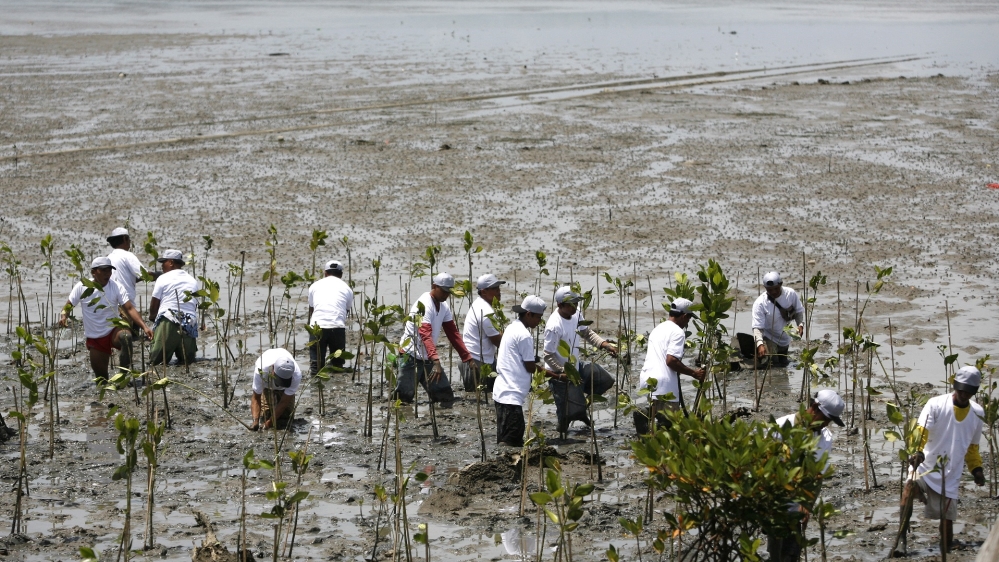
Superman is Dead started getting harassed for singing pro-environment tunes, or for raising anti-reclamation banners. At one point, the group was banned from performing.
Jerinx said that between 2013 and 2014, the police refused to issue them with a permit to perform outside Bali and his group was excluded from Soundrenaline, the biggest music festival in Southeast Asia held annually in Bali. The ban continued until last year.
|
|
Tomy of Artha Graha Network, is known for pushing to increase business and trade between Indonesia and China, had a different idea of what development should look like in Bali.
In 2013, he invited football superstar Cristiano Ronaldo to plant mangroves at Benoa Bay. Ronaldo was joined at the event by Yudhoyono.
At the time of the event, Artha Graha said Ronaldo had not received any compensation for joining the event.
The fight is not over
The Balinese people, however, were unimpressed and continued their resistance to the project.
Superman is Dead and other artists pressed on with their campaign.
In 2014, the Superman is Dead’s album title, Sunset in Anarchy Land, was awarded the best album by Rolling Stone Indonesia Reader’s Choice Awards, drawing more attention to their activism.
“Afterwards, the entire Indonesia finally knew that we were in Bali, dealing with a big case that will impact us,” Jerinx told Al Jazeera.
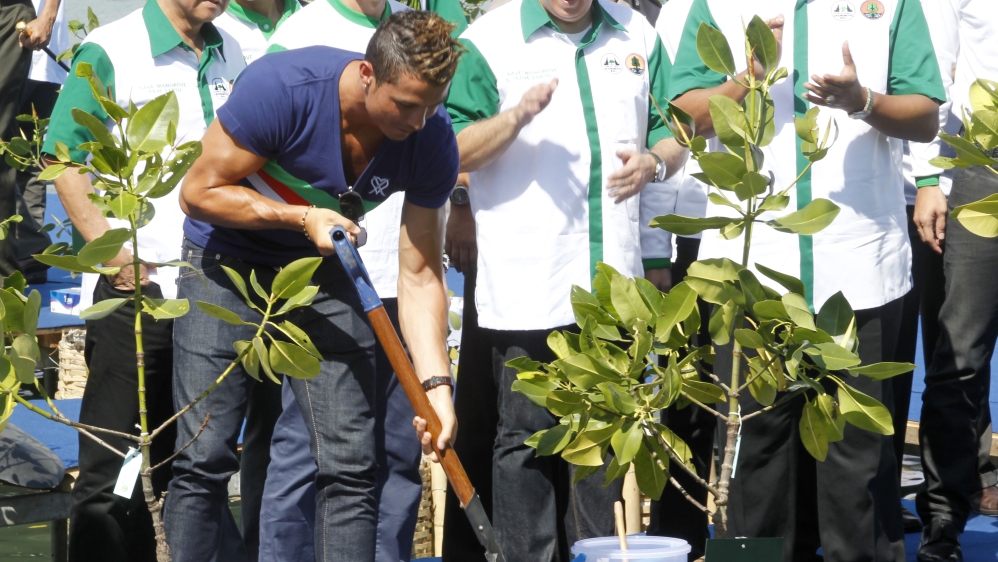
At the end of 2018, Bali’s governor finally spoke out in support of the movement and President Joko ‘Jokowi’ Widodo’s then-minister of fisheries, Susi Pudjiastuti officially declared the area a maritime conservation site.
But just months later, Pudjiastuti was replaced and the new minister, Edhy Prabowo, said he wanted to review the status of the area. Hundreds of Balinese went back to the streets in the protest.
The governor Wayan Koster, warned the central government that the reclamation could not continue. Aside from its environmental value, the area was sacred, he said.
“The economic potential can be built in other places that are still wide empty areas,” said Koster.
Gendo, the environmentalist and anti-reclamation convener, told Al Jazeera that the only way to ensure the reclamation project was stopped was for President Jokowi to issue a new decree annulling the order of his predecessor.
For Jerinx, the struggle is far from over, and he promises that the Balinese people will continue to resist.
“This movement is the longest people resistance in the modern history of Indonesia. As long as they plan to continue the reclamation, we are going to keep resisting.”